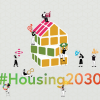Press Releases
Displaying Results 1 - 25 of 77
Faced with complex challenges of rapid urbanization, the cities of Almaty (Kazakhstan) and Podgorica (Montenegro) will benefit from new UNECE recommendations to help sharpen their efforts for smart and sustainable development. The Smart Sustainable City Profiles, presented today to the UNECE
Housing is one of the sectors most affected by the war in Ukraine, with over US$50 billion of damage recorded since the invasion by the Russian Federation. In Kharkiv, Ukraine’s second largest city, some 3,367 apartment buildings and 1,823 single apartment buildings have been destroyed and damaged
Overall damage to the housing sector alone following the Russian invasion of Ukraine is estimated at over US$50 billion. In Kharkiv, Ukraine’s second largest city, some 3367 apartment buildings and 1823 single apartment buildings have been destroyed and damaged, according to the City Council. The
A UNECE study on the sharing economy and its effects on housing markets shows how the massive emergence of temporary rental accommodation through platforms such as AirBnB has changed living habits in cities, and highlights a range of policy and regulatory approaches that can be taken to balance
Countries have taken a step to translate rising commitment for sustainable urban development into concrete changes to the fabric of our cities with the adoption of a UN-backed Declaration.
Today, governments attending the 83rd session of the UNECE Committee on Urban Development, Housing and
To support Bishkek in moving towards more sustainable, inclusive and resilient urban growth, the UNECE is advancing several smart sustainable city projects in partnership with the capital of Kyrgyzstan.
Bishkek faces multiple challenges, ranging from rapid population growth, continued expansion of
Cities’ growing role in the implementation of the 2030 Agenda has led to increased global attention on localizing SDGs. The preparation of Voluntary Local Reviews (VLRs) enables the review of SDG implementation at a local level. VLRs complement Voluntary National Reviews developed at the country
Humanity is facing not one but three intertwined crises: the COVID-19 pandemic, climate change, and a lack of adequate and affordable housing. Each of these three emergencies has the potential to compound the multidimensional impacts of the others in health, social cohesion, environmental integrity
Approximately 50 million people in the UNECE region live in inadequate housing conditions. In the 21st century, the governance, land and finance systems that influence the delivery and consumption of housing have been beset by numerous crises. Emanating from climate change, unguided investment
Approximately 150 million people are homeless and more than 1.8 billion people worldwide lack adequate and affordable housing. While levels of homelessness vary considerably across UNECE countries, finding sustainable solutions to ensure access to housing for all members of society remains a
The United Nations Economic Commission for Europe (UNECE) and the Norman Foster Foundation signed a Memorandum of Understanding (MoU) on 23 March 2021.
The two organisations formalise their cooperation in the promotion of sustainable housing and sustainable cities through the establishment of the
A UNECE-led partnership will improve energy efficiency of the global building supply chain and its products to deliver high performance buildings in seven UNECE member States: Armenia, Georgia, Kyrgyzstan, Republic of Moldova, Tajikistan, Ukraine, and Uzbekistan.
The launch of the project was
UNECE and LIUC – Cattaneo University have agreed to establish a Geneva UN Charter Centre of Excellence to advance sustainable finance for infrastructure and smart cities. Against the backdrop of the COVID-19 pandemic, UNECE joins forces with an expert institution in sustainable finance to support
The new repository will help address disaster risks in line with the 2030 Agenda for Sustainable Development
It consolidates good practices and lessons learned over the past decade in Europe and beyond in the fields of land-use planning and industrial safety
Disasters caused by natural hazards,
The current health crisis made the need for more robust cities more evident than ever before. The pandemic amplified and exposed the vulnerabilities of current urban realities, including overcrowded public transport, inadequate and unsanitary settlements, high levels of air pollution, and the
Local authorities are on the front line in addressing some of today’s most pressing sustainability challenges, including climate change, environmental degradation, social inclusion and mobility. However, despite their responsibility for actions affecting citizens’ lives every single day, making
Belarus has made considerable progress in implementing sustainable housing and land management policies over the last decade, but targeted efforts will be required to address remaining challenges, according to a new UNECE report.The Second UNECE Country Profile on Housing and Land Management for
UNECE and the Norwegian City of Trondheim have agreed to establish a Geneva UN Charter Centre of Excellence to advance sustainable housing as a foundation for urban development. This is the fifth Centre to be created by UNECE.The Geneva UN Charter on Sustainable Housing endorsed by UNECE
The global financial crisis of 2008 was the result of inadequate regulation of financial and real estate markets. Real estate bubbles were allowed to inflate, mortgage lending was inadequately supervised, the financial markets were allowed to develop complex financial instruments that few
Urban areas are responsible for an estimated 75% of C02 emissions worldwide, making city-level action critical for global efforts to address the climate emergency. Mayors and other key urban leaders can play a pivotal role in localizing climate action, with immediate impact on the ground
Cities play an essential role in addressing some of today’s major sustainability challenges, whether it comes to reducing the impact of climate change, giving people a home, strengthening resilience to disasters or reducing pollution. Mayors meeting today at the United Nations in Geneva for the
The global financial crisis of 2008 led to more inequality in the UNECE region. The past two decades have witnessed a general trend towards increasing home ownership. According to the Habitat III Regional Report on Housing and Urban Development for the UNECE Region (2016), many local governments
The Secretary General of the Organization for International Economic Relations (OiER), Ms. Kari Aina Eik, and the Executive Secretary of the UNECE, Ms. Olga Algayerova, signed today a Memorandum of Understating (MoU) to establish a Geneva UN Charter Centre of Excellence on Smart Sustainable
The Grenfell Tower fire in London in June 2017 has brought under the spotlight the need for a coherent global approach to fire safety. That fire - the worst in the UK for almost a century that claimed 72 lives - not only focused attention on building and fire safety in the United Kingdom
According to United Nations estimates, around two-thirds of the world’s population will live in urban areas by 2050. Smart sustainable cities technologies and approaches, including those based on ICT solutions and Internet of Things (IoT) are already helping people to overcome multiple















